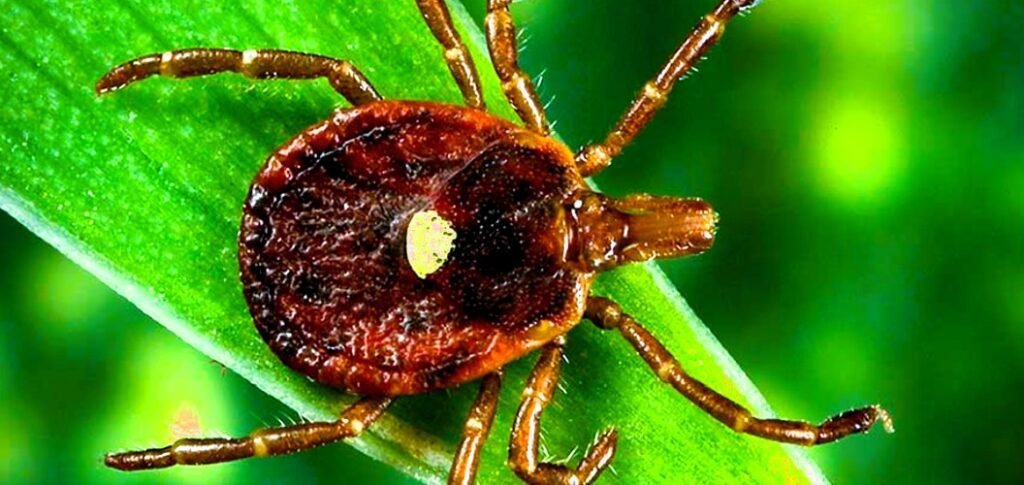
Beware of Alpha-Gal Syndrome: CDC Warns of Tick-Related Meat Allergy
Alpha-Gal Syndrome, a potentially fatal allergic reaction, is thought to be brought on by a sugar present in pork, beef, rabbit, lamb, and deer in addition to other meats.
Are ticks an issue for you this summer? To that list, tack on red meat.
The CDC reported that over 110,000 suspected cases of Alpha-Gal Syndrome, or AGS, occurred between 2010 and 2022, although the real number of cases may be up to four times higher. Consuming meat that contains alpha-gal can cause an allergic reaction.
Table of Contents
According to the CDC, alpha-gal is a sugar that can be found in a variety of foods, including beef, pork, rabbit, lamb, and deer. It can also be found in some medications, dairy products manufactured from cows, gelatin, and some medications.
The CDC estimated that about 450,000 persons in the United States may be affected by Alpha-Gal Syndrome. However, since a positive diagnostic test and a particular examination are needed to diagnose Alpha-Gal Syndrome, testing cannot be done on all AGS patients.
According to the American Medical College Association, a warm temperature makes it more conducive for ticks, and human development has encroached into wildlife areas, contributing to the rise in tick populations and incidences of Lyme disease in recent years.
According to the CDC, many American healthcare professionals are unaware of this “potentially life-threatening allergic condition.” According to the government organization, individuals who are aware of AGS still know very little is known regarding its diagnosis and treatment.
New information reveals that tick bites from lone star ticks are the main cause of AGS. Although additional research on the function of ticks and the reasons why some people acquire AGS is required, the CDC stated that people may develop AGS after being bitten by a tick. The southern, midwestern, and mid-Atlantic regions were the focus of several instances.
According to Dr. N. Carpenter, a disease scientist, and the paper’s lead author, “Alpha-Gal Syndrome is an important emerging public health issue, with potentially serious health consequences that could last a lifetime for some patients.”
How will you be able to diagnose AGS?

Hives and itchy rashes, burning in the chest, excruciating stomach pain, a reduction in blood pressure, and swelling of the lips, neck, or eyelids are just a few of the symptoms that someone with AGS may suffer.
Alpha-gal, which is frequently present in animals including hogs, cattle, and rabbits, is known to cause symptoms 2 to 6 hours after consumption. Gelatin and other dairy products like cow’s milk may also contain it.
Dr. J. Salzer, one of the senior authors of both letters published this week on AGS, stated that the burden of the condition in the United States “could be quite substantial, due to ambiguous and incompatible symptoms, difficulties accessing healthcare, and a lack of medical awareness, instances frequently go untreated.
People who believe they may have AGS should act as their own advocates, tell their PCPs (primary care doctors) or allergy experts and give a detailed history. of symptoms, undergo a physical examination, and get tested for specific antibodies (proteins made by your immune system),” she continued.
Primary care physician Natasha Bhuyan, of Phoenix, Arizona, advised MarketWatch via email that consumers should not be hesitant to contact their doctor if they see any new symptoms. Even if the symptoms seem minor or hazy, they might be a component of something more serious.
AGS and other tick-borne illnesses like Lyme disease, which can be spread during the warm months, can be prevented by avoiding tick bites.
Individuals with Lyme disease may begin to exhibit red rashes several days after infection as well as flu-like symptoms, such as headaches and stiff neck, a few days or weeks after the tick bite, according to Johns Hopkins Medicine.
According to estimates, there are more than 300,000 new cases of Lyme disease reported per year in the US.
The Need for Prevention and Education.

It is critical to increase awareness about Alpha-Gal Syndrome among medical professionals and the general public due to the possible severity of the disorder. People who live in areas with a large number of ticks should get education about the dangers of tick bites and the value of early AGS detection.
In order to lower the occurrence of AGS and other tick-borne disorders, tick-bite prevention is crucial. The following are some precautions people can take to safeguard themselves from ticks:
Use insect repellents with at least 20% DEET (N, N-diethyl-m-toluamide) on exposed skin and clothing while entering tick-prone environments like grassy fields or forests.
Dress Properly: To reduce skin exposure, wear light-colored, long-sleeved shirts and slacks tucked into socks or boots. On light-colored clothing, ticks are simpler to see.
Keep to the routes: When hiking or strolling through forested areas, keep to the well-indicated routes and stay away from tall grass and bushes, which are more likely to have ticks.
Tick checks should be carried out after being outside. Pay close attention to the armpits, groin, scalp, and behind the ears as you completely inspect your body for ticks. Ticks should be promptly removed using fine-tipped tweezers.
Treat Clothing and Gear: Apply products containing 0.5% permethrin to clothing and gear to further lower the risk of tick bites. Even after multiple washings, clothing that has been permethrin-treated is still protective.
Shower Immediately After Outdoor Activities: Showering within two hours of returning indoors can aid in removing unattached ticks and perhaps even avert tick attacks.
Pets should also be properly inspected for ticks, and tick prevention medications prescribed by veterinarians should be used on them.
Establish Tick-Safe Zones:
Take into account landscaping changes, such as keeping lawns trimmed and getting rid of leaf litter and tall grasses, to establish tick-safe zones surrounding the house.
Consult healthcare professionals: If you think you may have Alpha-Gal Syndrome or have been bitten by a tick, go to the hospital and let your doctor know.
Raise Awareness: To spread awareness and safeguard others, talk to friends, family, and neighbors about AGS and tick control.
The Way to More Complete Understanding
Despite the difficulties in diagnosing AGS and the lack of a specific cure, current research is illuminating the ailment and its potential health effects on the general population. The medical industry is attempting to create improved AGS management techniques and diagnostic technologies.
It is crucial for healthcare professionals to keep knowledgeable and prepared to diagnose and treat these disorders efficiently as the prevalence of AGS and tick-borne infections rises. By being aware of the dangers and symptoms connected with AGS, the public can help with early detection and preventative steps.
Strengthening Defenses – How the Help Immune System Guards Against Alpha-Gal Syndrome

The immune system acts as a vital defense mechanism to prevent Alpha-Gal Syndrome. When a tick bites and introduces the Alpha-Gal sugar into the body, the immune system recognizes it as a foreign substance. It produces antibodies to neutralize this sugar, reducing the risk of developing the meat allergy. However, understanding how to protect against tick bites is essential to avoid the introduction of Alpha-Gal into the system, ensuring the immune system’s effective defense.
Alpha-Gal Syndrome is a serious illness that can have life-threatening effects for some people, to sum up. This allergic reaction is primarily associated with tick bites from lone star ticks and is brought on by eating meat containing alpha-gal. It is essential to raise awareness and knowledge among healthcare professionals and the general public about AGS because its prevalence is on the rise.
The risk of AGS and other tick-borne illnesses like Lyme disease must be reduced by taking precautions to avoid tick bites. People can safeguard themselves and possibly prevent severe health issues linked to Alpha-Gal Syndrome by exercising caution and getting medical help when necessary. The future of those affected by this ailment may hold hope as science advances in diagnoses and management.






Jimmy Buffett, a Southern Miss alumnus and well-known singer